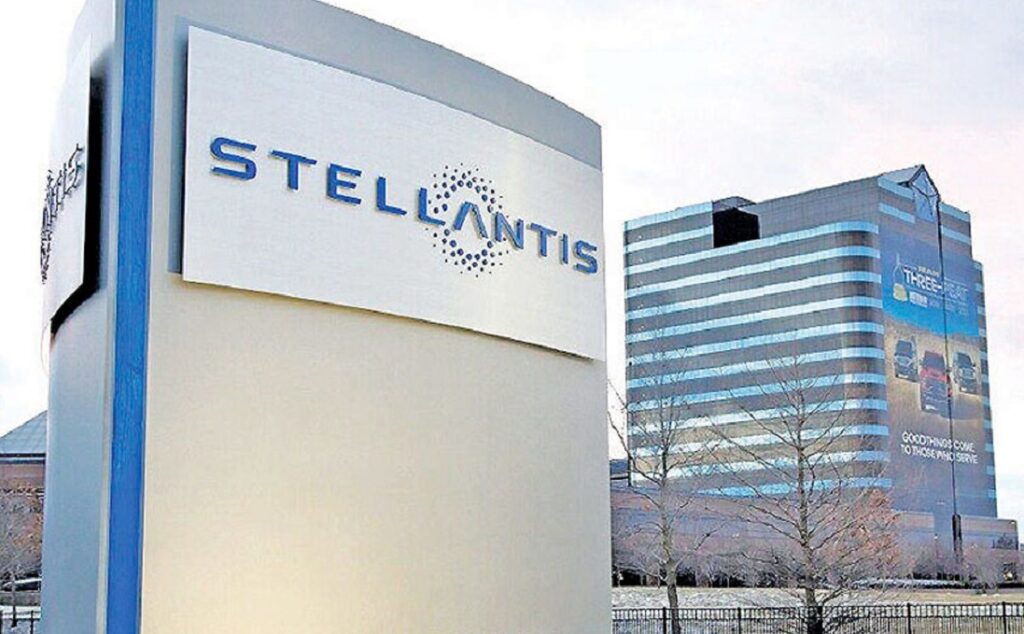Lamarcus Keels, Vice President and Plant Manager of Stellantis’ Dundee Engine Plant, has built a distinguished career in manufacturing, with roots that trace back to his military service. After serving three years on active duty and seven years in the National Guard, he transitioned into the automotive industry, where he has spent nearly two decades, including significant roles at General Motors and now Stellantis. For him, the skills and values developed during military service have been instrumental in shaping his journey through leadership in manufacturing.
According to Keels, veterans are uniquely suited for leadership roles within manufacturing due to their military training and experiences. “In the military, you gain a lot of skills—leadership being one of the major ones,” he explains. “No matter what level you are, you have some form of leadership that you are responsible for, whether it’s a battle buddy, a platoon, a squad or a company.” He emphasizes that these leadership skills are directly transferable to manufacturing, where guiding diverse teams toward common goals is crucial.
 One of the critical strengths veterans bring to the manufacturing floor is the ability to lead effectively under pressure. In the military, leadership is not optional—it’s a necessity. “In the military, we have to lead day in and day out because lives depend on it, and the mission depends on it,” Keels notes. This sense of responsibility and commitment aligns closely with manufacturing demands, where leaders must ensure that production goals are met safely, efficiently and with a focus on quality.
One of the critical strengths veterans bring to the manufacturing floor is the ability to lead effectively under pressure. In the military, leadership is not optional—it’s a necessity. “In the military, we have to lead day in and day out because lives depend on it, and the mission depends on it,” Keels notes. This sense of responsibility and commitment aligns closely with manufacturing demands, where leaders must ensure that production goals are met safely, efficiently and with a focus on quality.
Veterans also thrive in the team-based environment of modern manufacturing. Military training fosters not only leadership but also discipline, resilience and the ability to work collaboratively. “Whether you’re a repair person or an infantryman, those skills transfer just based on the disciplines that we have, the ability to fulfill and complete our mission and the ability to work through obstacles and opportunities,” he explains. Their familiarity with structured environments and capacity to motivate and support their teams make veterans invaluable assets in any manufacturing setting.
Keels’ career reflects the seamless transition of military skills into civilian leadership roles. After his service, he joined General Motors as a supervisor in transmission assembly and quickly progressed through various leadership positions, ultimately leading him to Stellantis. Much of his success, he says, comes from recognizing and leveraging the value of his military background. “Being able to market yourself and understand how those military traits transfer to the civilian world is a great asset,” he advises.
He stresses that veterans should understand their value and be able to communicate it to potential employers effectively. “Leadership is not something that everybody can do successfully,” he states. “Veterans are accountable, trustworthy, punctual and disciplined—all qualities that companies look for in their managers.” By highlighting their military accomplishments and translating them into business terms, veterans can demonstrate that they are capable and highly effective leaders who can drive results in manufacturing.
At Stellantis, the commitment to supporting veterans is evident through a Business Resource Group (BRG) dedicated to those who have served. This BRG provides space for veterans to connect, advocate and develop their skills beyond the workplace. “We value veterans because of the leadership, timeliness and accountability they bring,” Keels explains. Stellantis offers various roles where veterans can apply their skills in management, skilled trades or technical positions.
Proud of Stellantis’ recognition as a Top Veteran-Friendly Employer by U.S. Veterans Magazine, Keels says, “It’s a tremendous honor to be included on the U.S. Veterans Magazine list. This is something that we live, breathe and do every single day. It’s not just about checking a box—it’s about genuinely valuing the unique strengths that veterans bring to our teams.”
For Keels, the most fulfilling part of his job is making a positive impact on those around him, a passion deeply rooted in his military experience. “Whether it’s another leader, a peer or someone on the shop floor, making a difference in someone’s life is what drives me,” he shares. He values personal connections and strives to create an environment where people feel supported, especially on difficult days. His approach to leadership is about more than just directing others; it’s about being present, offering support and creating a sense of belonging—qualities that veterans naturally bring to the table.
He also finds inspiration in his faith, guided by the belief that “I can do all things through Christ who gives me strength.” He applies this principle in his professional role and in his broader life as a mentor, pastor and community leader. For him, every day is an opportunity to make a difference, drawing on the leadership skills he developed in the military to build stronger teams, communities and, ultimately, a better world.
With their proven leadership, discipline and resilience, veterans are not just fit for manufacturing—they are an essential part of what drives success in the industry. Keels’ journey from active duty and the National Guard to leading a major automotive plant exemplifies how military skills can lead to exceptional leadership in civilian roles, making veterans some of the most valuable players in the manufacturing sector.
Read more articles for the Veteran Community here.


